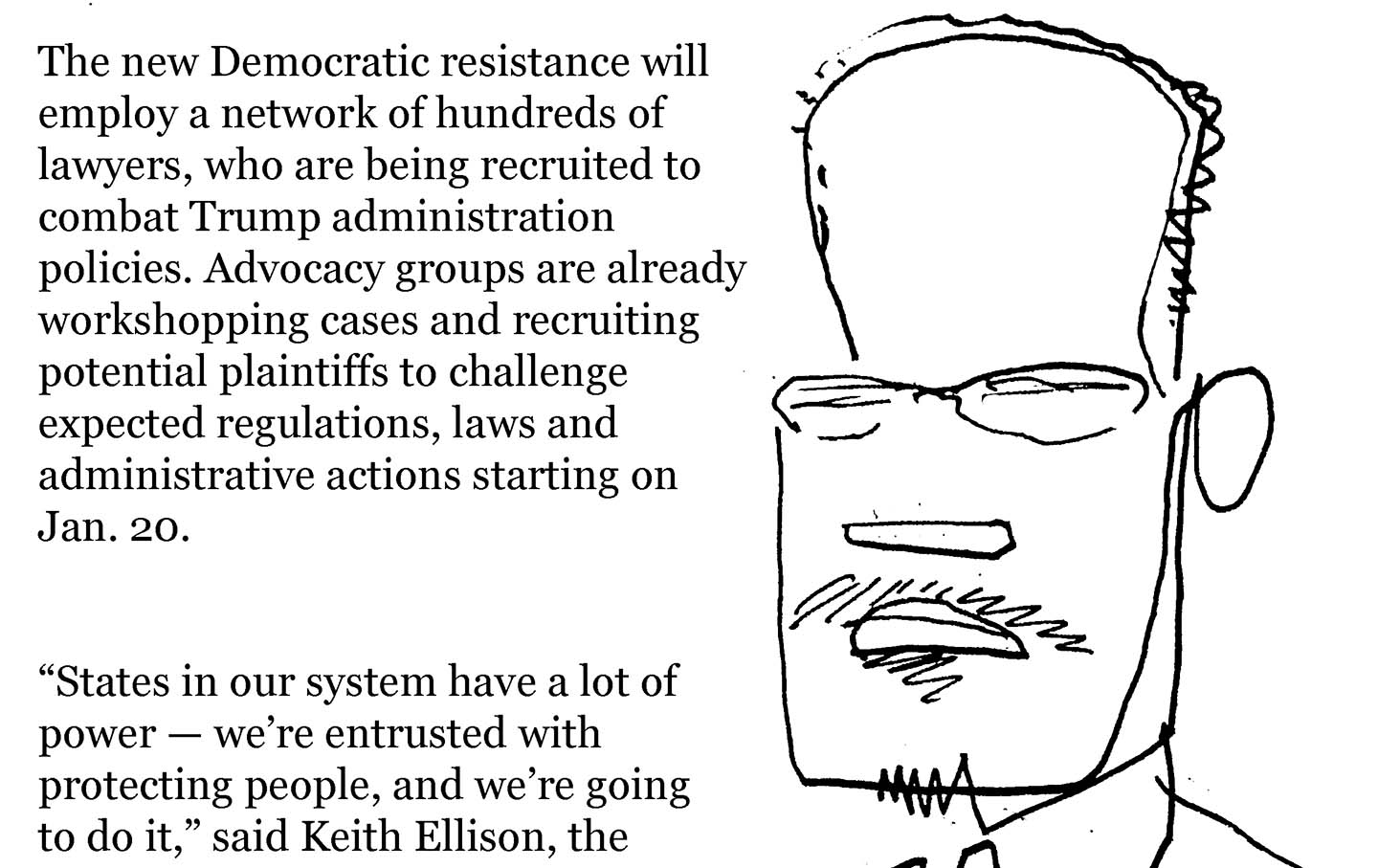No, the Israel/Palestine Conflict Is Not “Simple”
Such a complex situation cannot be boiled down to a battle between the oppressor and the oppressed.
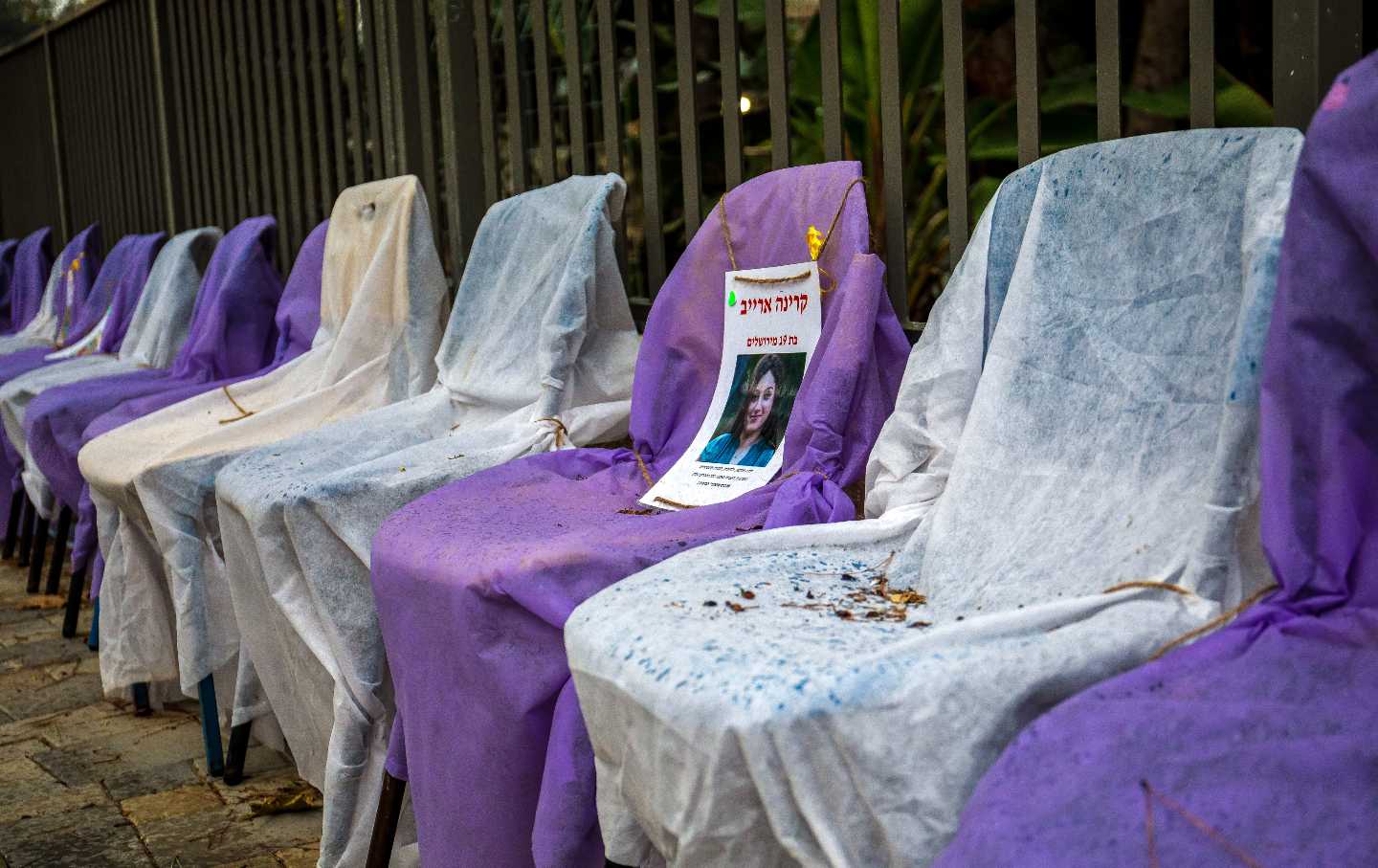
Describing the conflict between Israel and Palestine as “simple” isn’t a sign of anything except ignorance.
After Hamas attacked Israel on October 7 in a murderous rampage, the activist left and a shocking number of academics, politicians, and 51 percent of 18- to 24-year-olds quickly concluded that killing children and the horrific rape and slaughter of their families constituted a justified act of resistance, even cause for celebration. With the kind of blind confidence that often stems from ignorance, many seemed to retrofit the victims into a narrative that cast Jews as white colonists who, having stolen the land from the indigenous Palestinians, got what they deserved. This kind of ahistorical narrative has made incidents like public defenders’ tearing down posters of Israeli hostages being held in Gaza possible. And for the Muslim Students Association at Queens College to claim that Hamas’s own footage of themselves butchering innocent people is “zero evidence” of their crimes. And for progressive politicians to cheer on protests where people chant “from the river to the sea, Palestine will be free,” insisting that it’s just a cry for liberation without any concern for the very real context in which Hamas uses it to directly connote the ethnic cleansing of Jews. (Especially when those same people chanting would rightly find the inverse to be exclusionary: Netanyahu’s Likud party has declared that “between the Sea and the Jordan there will only be Israeli sovereignty.”) For some of us, this disconnect is a particularly hard circle to square after the left has argued for years (quite credibly) that impact, more so than intent, is what matters in considering the effects of language.
The intellectual poverty that would reduce human history to a battle between the oppressed and the oppressors is also just plain lazy. This part of the world is complicated—and saying so isn’t morally suspicious. When outsiders collapse the Palestinian cause into, say, the struggle for Black Lives or LGBTQ rights—while framing that position as virtuous because it’s “simple”—it’s not only wrong but counterproductive.
A recent interview on Democracy Now! with author Ta-Nehisi Coates is instructive. Speaking about a trip he took to Gaza, the West Bank, and Israel, he said: “The most shocking thing about my time over there is just how uncomplicated it is…. I’m not saying the details of it aren’t complicated. History is always complicated…but the way this is reported in the Western media is as if you need a PhD in Middle Eastern Studies to understand the basic morality of holding a people in a situation in which they don’t have basic rights.” As evidence of segregation, Coates offered an example of an Israeli soldier asking for his religious credentials before allowing him to enter a specific street—into which his Palestinian guide could not pass. Fair enough.
But then things went sideways.
He continued: “I don’t know how anybody who benefits, who stands on the shoulders of our ancestors…could see what is happening right now, could see the bombs being dropped…in service of Jim Crow and segregation and be OK with that.”
What Coates’s telling elides, however, is the fresh horror of 1,200 killed civilians and military forces whose killers took 240 people hostage.
His compassion for Palestinians is natural, and using your personal experience to relate to someone else’s pain is good. And thanks to social media, there’s constant pressure for any public intellectual like Coates to take a position on a huge variety of topics—and very little reward for ambiguity. Besides, the moral righteousness of simplicity is much more attractive than the confusion and despair that come from actually sifting through this horror show for potential solutions.
It’s possible to be Black (or white, or Jewish) and appalled at the ethno-nationalism and racism of the Netanyahu government. It’s possible to be horrified at the 14,000 dead Palestinians in Gaza. And it’s also possible—even necessary—to acknowledge that Hamas’s founding document specifically calls to annihilate the Jewish state in favor of Muslim hegemony: “[All of Israel, Gaza and the West Bank is] consecrated for future Muslim generations until Judgement Day. It, or any part of it, should not be squandered: it, or any part of it, should not be given up.” But it is not possible to call any of this simple. Pretending otherwise is only possible if you avoid inconvenient facts. Like the fact that Hamas attacked civilians knowing it would provoke a military response from Israel and put Palestinians lives at risk, because the militant group embeds itself within the civilian population. Hamas has claimed that the well-being of the people it supposedly represents is not its problem, but the purview of the United Nations, while hoarding fuel, medicine, and food exclusively for militants. It’s not poor either, with assets estimated at over $1 billion, thanks in part to funding from the Islamic Republic of Iran. And it’s an ongoing threat to all Israelis, stating explicitly that it would repeat the attack again if given the chance. To quote Coates in that same interview quoting Maya Angelou: “When people show you who they are, believe them the first time.”
When Ohio State Senator Nina Turner tweeted, “It should not be controversial to call for a ceasefire,” she ignored those of us for whom this call is in fact controversial, framing the likely sacrifice of Israeli lives as somehow the obvious moral position, which plenty of Jews reject. That includes Bernie Sanders, who told CNN: “I don’t know how you can have a ceasefire, [a] permanent ceasefire, with an organization like Hamas, which is dedicated to turmoil and chaos and destroying the state of Israel.” And to be clear: Hamas militants killed Israelis because they hate Jews, not because they have a principled opposition to Zionism. The terrorists who invaded Israel on October 7 didn’t make any distinction between “Zionist” and “Jew,” with one calling his parents to boast that “Your son killed Jews…. Mom, your son is a hero.” While the revised (and sanitized) Hamas charter of 2017 claims that it is in a nationalist conflict with the Zionist project rather than a religious struggle with Jews, it failed to repudiate the explicit antisemitism of its 1988 charter, which overtly called for the destruction of Israel in favor of an Islamic theocracy.
Reducing all this to one oppressed group’s fight for justice not only conflates the Palestinian people with Hamas but allows outsiders to opt out of grappling with the inconsistencies within their own position. One of these inconsistencies is that history didn’t start in 1948 when the state of Israel was established. Jews are not recent colonizers of the Levant but have been native to the region for millennia. Nor are we always racialized as white—not even those of us with ancestry from Europe, where we’ve famously been hunted on racial grounds. Jews descended from the Middle East and North Africa, known as Mizrahim, make up nearly half of Israel’s population. These are largely brown-skinned people who were violently expelled from Iraq, Syria, Yemen, and other Arab countries for being Jews. Denying that reality because it complicates a simplistic framework of white supremacy does nothing to advance peace. The only thing it does is advance the stated goal of Hamas, and the goal of most anti-Zionists: to eradicate the state of Israel. If those who are calling for a cease-fire are truly interested in peace, they should be equally invested in calling for the hostages to be released (and less concerned with debating whether Hamas really raped their victims or merely murdered them in cold blood).
Dealing with inconvenient facts and complexity is something supporters of Israel have to do, too. But this is an argument for the left to abandon its tendency to equate simplicity with virtue and complexity with amorality. It’s this tendency that’s allowed the left to increasingly take an explicitly anti-Israel position without offering any real solutions. The one-state “delusion” is “the hubris of outsiders,” according to historian Arash Azizi. The reality is that the “only way forward,” as two dozen defectors from the Democratic Socialists of America wrote in their letter of resignation from the organization, “is to seek a just peace that recognizes and secures the rights and dignity of both peoples.”
Choosing not to sit with the complexities of that reality isn’t the moral position, just the easy one.
Correction: A former version of this article stated that Hamas killed 1,200 Israeli citizens on October 7. That number includes both civilians and military forces.
We cannot back down
We now confront a second Trump presidency.
There’s not a moment to lose. We must harness our fears, our grief, and yes, our anger, to resist the dangerous policies Donald Trump will unleash on our country. We rededicate ourselves to our role as journalists and writers of principle and conscience.
Today, we also steel ourselves for the fight ahead. It will demand a fearless spirit, an informed mind, wise analysis, and humane resistance. We face the enactment of Project 2025, a far-right supreme court, political authoritarianism, increasing inequality and record homelessness, a looming climate crisis, and conflicts abroad. The Nation will expose and propose, nurture investigative reporting, and stand together as a community to keep hope and possibility alive. The Nation’s work will continue—as it has in good and not-so-good times—to develop alternative ideas and visions, to deepen our mission of truth-telling and deep reporting, and to further solidarity in a nation divided.
Armed with a remarkable 160 years of bold, independent journalism, our mandate today remains the same as when abolitionists first founded The Nation—to uphold the principles of democracy and freedom, serve as a beacon through the darkest days of resistance, and to envision and struggle for a brighter future.
The day is dark, the forces arrayed are tenacious, but as the late Nation editorial board member Toni Morrison wrote “No! This is precisely the time when artists go to work. There is no time for despair, no place for self-pity, no need for silence, no room for fear. We speak, we write, we do language. That is how civilizations heal.”
I urge you to stand with The Nation and donate today.
Onwards,
Katrina vanden Heuvel
Editorial Director and Publisher, The Nation
More from The Nation

Democrats Must Do Everything They Can to Block the Dangerous Nonprofit Bill Democrats Must Do Everything They Can to Block the Dangerous Nonprofit Bill
The House passed a bill aimed at giving the government sweeping powers to crush nonprofits and attack supporters of Palestine. Democrats need to stand firmly in its way.
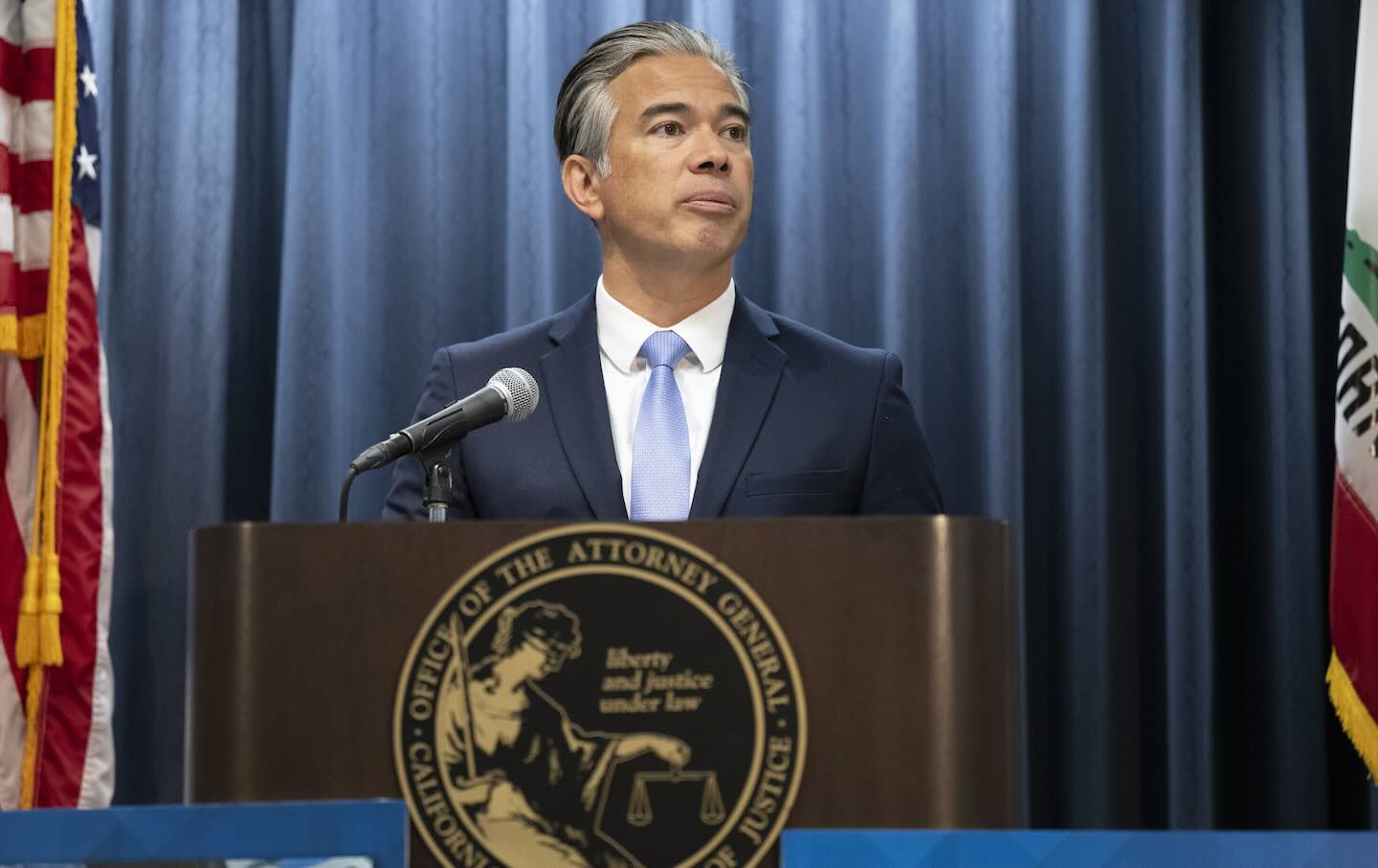
California Is Ready to Go Toe to Toe With Trump 2.0 California Is Ready to Go Toe to Toe With Trump 2.0
“We’ve thought about all the possibilities, and have prepared for every one of them,” said AG Rob Bonta, “and are ready to take action when there’s any unlawful activity.”
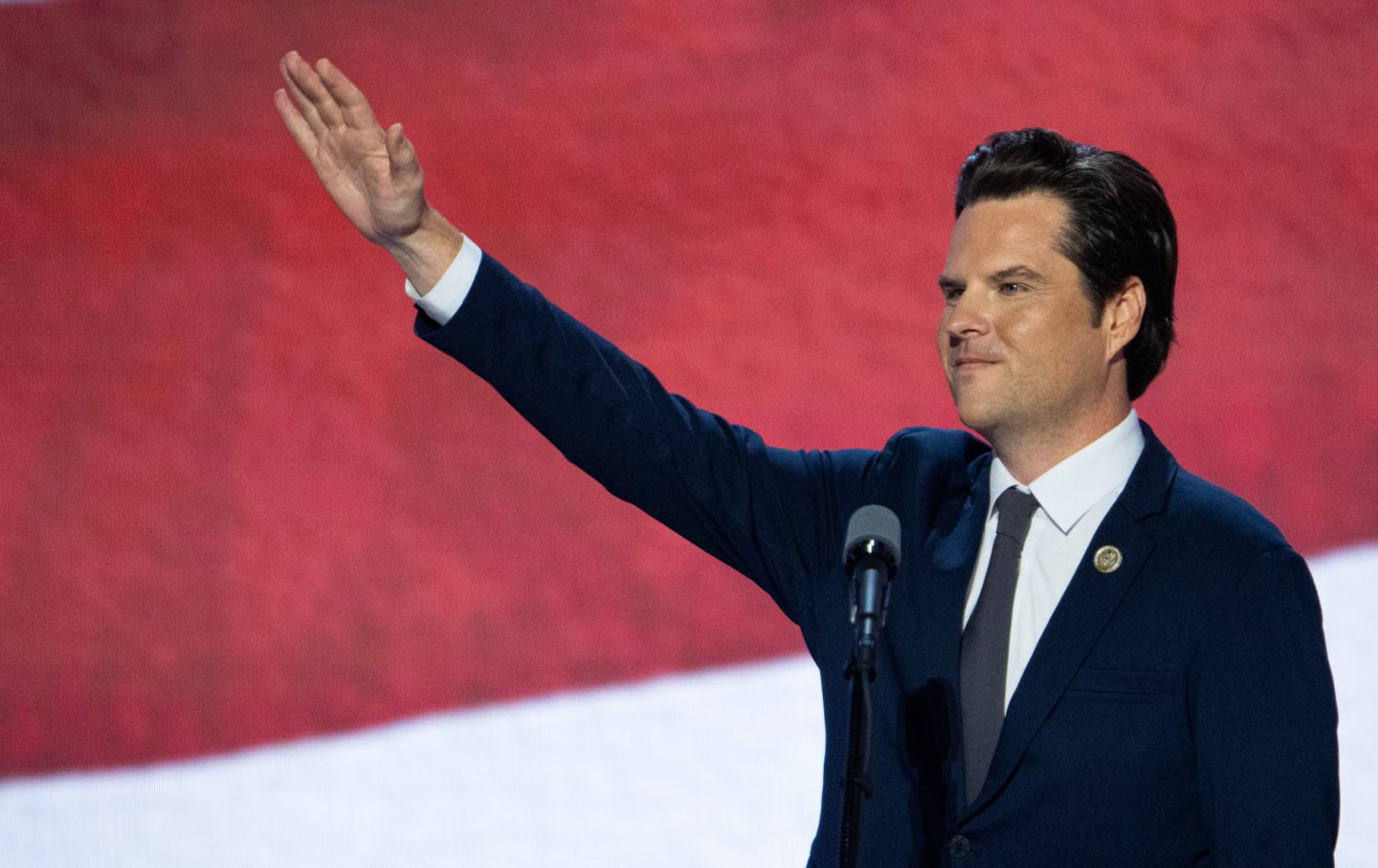
BREAKING: Matt Gaetz Quits, and Journalism Still Matters—a Lot BREAKING: Matt Gaetz Quits, and Journalism Still Matters—a Lot
Forty-five minutes after CNN contacted Trump’s attorney general nominee about additional allegations of sexual misconduct, he was done.

The Red Wave Didn’t Hit Statehouses in This Election The Red Wave Didn’t Hit Statehouses in This Election
State-level Democrats largely held their ground, even scoring key victories in battleground states—and under Trump, that’s going to matter.
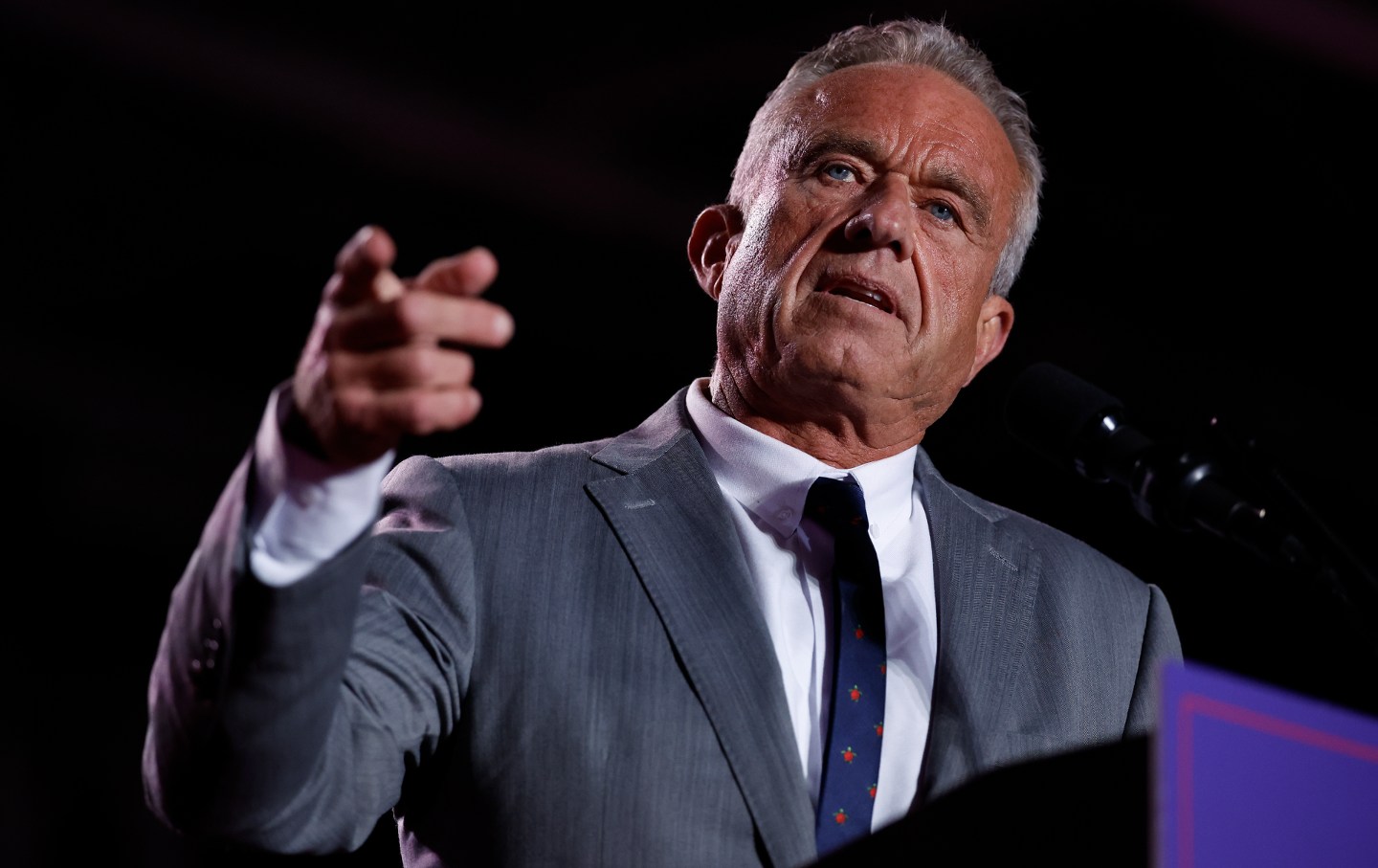
How Nominally Pro-Choice RFK Jr. Can Get Anti-Abortion Groups to Back His HHS Nomination How Nominally Pro-Choice RFK Jr. Can Get Anti-Abortion Groups to Back His HHS Nomination
He can pick a strident abortion opponent like Roger Severino, who wrote the Project 2025 chapter on HHS, as his number two.

